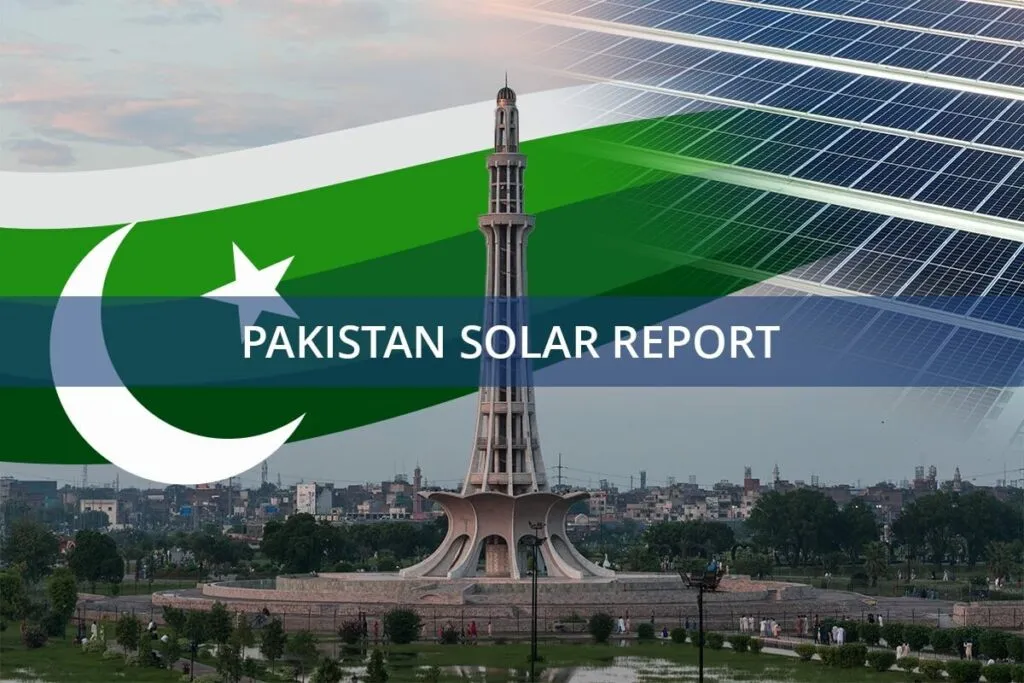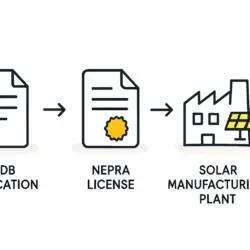Pakistan’s Prime Minister, Shehbaz Sharif, has announced a landmark duty exemption, removing the custom duty on solar panels. This strategic move aims to make green energy more affordable and provide cheaper electricity across the country, highlighting the government’s commitment to renewable energy solutions for all citizens.
Economic Stability Tied to Renewable Energy Expansion
Prime Minister Shehbaz Sharif has emphasized his government’s dedication to stabilizing the national economy, highlighting renewable energy as a crucial component of this strategy. He also expressed satisfaction with the progress made toward economic stability, particularly through the promotion of renewable energy.
Alongside these efforts, the government is focusing on increasing exports—particularly from small and medium-sized enterprises (SMEs)—while withdrawing privileges for the elite to promote economic equality. This approach furthers the broader goal of creating a more inclusive and sustainable economic environment.
Clarification on Solar Panel Import Policies

Solar energy in pakistan (Image: Collected)
The Federal Board of Revenue (FBR) recently addressed public concern, clarifying its position on the duty on solar panels after a period of uncertainty. Speculation had been mounting about potential changes to solar energy regulations, including a possible shift toward ‘gross metering’ and new taxes on solar products. The government’s assurance that no additional duties will be imposed is a crucial step in maintaining investor confidence in the solar energy sector.
Given Pakistan’s abundant sunshine, solar power plays a central role in the country’s energy strategy. Recognizing this potential, the government is actively encouraging solar adoption to address energy shortages, enhance energy security, and reduce reliance on fossil fuels. The recent duty exemption is a key initiative designed to make solar energy more accessible to the general population.
The policy also reflects the government’s commitment to democratizing access to renewable energy technologies nationwide. By simplifying regulations and offering incentives for solar investment, particularly for SMEs, the government is paving the way for a broader energy transition that benefits all citizens.
Major Solar Power Initiatives Underway
Pakistan is advancing several high-profile solar projects to expand its renewable energy capacity and reduce its dependence on fossil fuels. Among the most prominent is the Quaid-e-Azam Solar Park in Bahawalpur (Punjab). With an initial capacity of 1,000 MW, this solar park stands as one of the largest in the region and continues to grow through various expansion phases.
Another significant initiative is the Sukkur Solar Power Project in Sindh province, which is set to contribute an additional 50 MW to the national grid. These projects are part of regional efforts to decentralize solar power production and improve energy access in underserved areas.
Growing Private Sector Contributions
The private sector is also playing a vital role in Pakistan’s renewable energy landscape. Companies like Reon Energy and Zorlu Energy Pakistan are developing large-scale solar projects in collaboration with the government and through private ventures. These efforts are advancing the renewable energy market while creating jobs and stimulating economic growth across the country.
Net metering regulations, combined with other government incentives, are designed to encourage the adoption of solar panels in both residential and commercial sectors. As these policies take effect, the use of solar energy is expected to increase across Pakistan’s infrastructure, supporting a sustainable energy transition and enhancing national energy security.
Pakistan’s solar initiatives exemplify the nation’s ambition to harness its abundant solar resources for a cleaner, more sustainable energy future. The evolution of these projects will be critical for addressing environmental concerns and meeting the country’s growing energy demands.
The duty exemption on solar panels, combined with ongoing government support and private sector initiatives, positions Pakistan to lead the regional shift toward renewable energy. This approach not only addresses immediate energy needs but also contributes to long-term environmental sustainability and economic growth, paving the way for a brighter, greener future.



